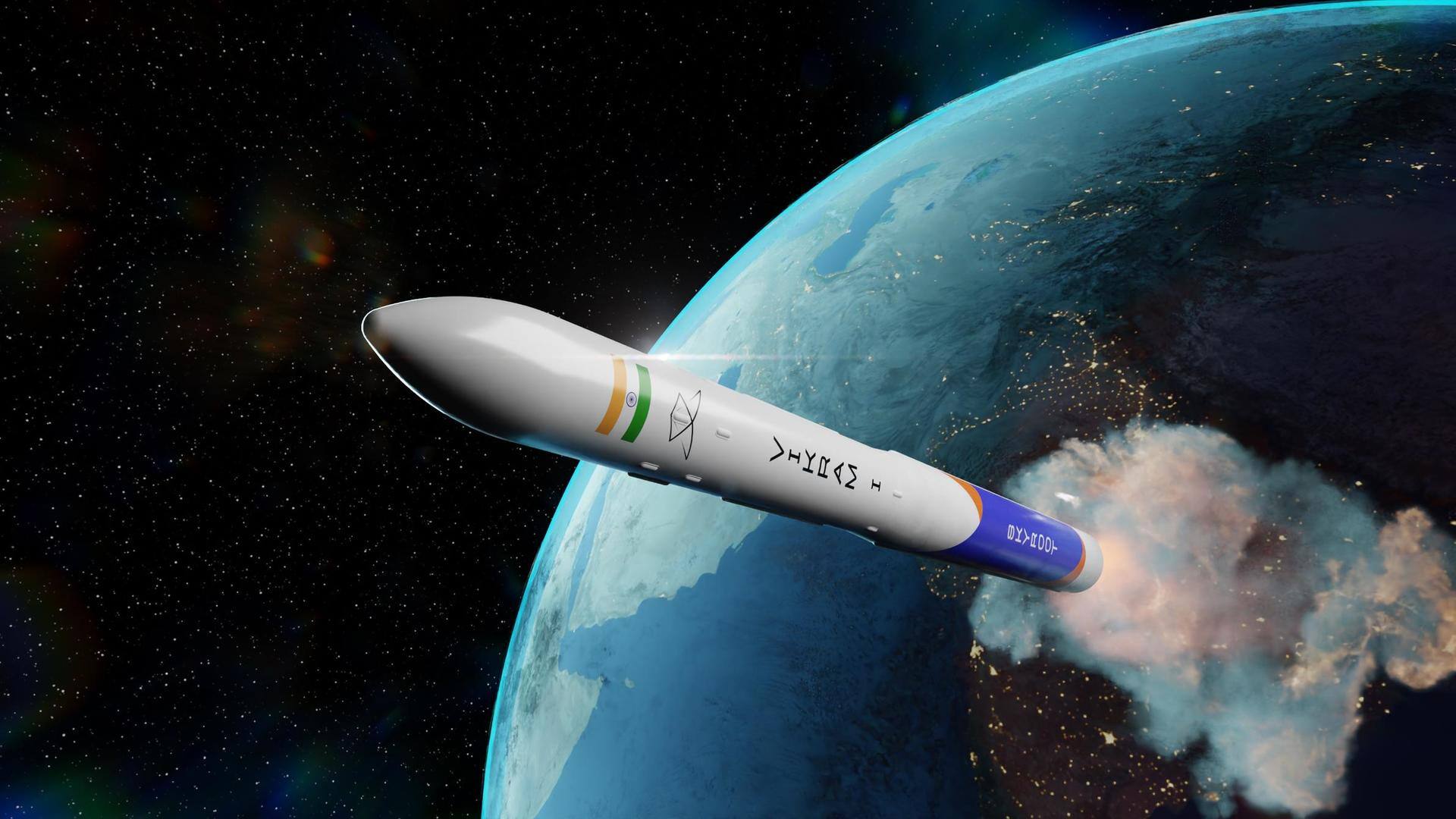
Historic! ISRO launches Vikram-suborbital as country's first privately made rocket
What's the story
ISRO launched the country's first-ever private rocket, named Vikram-suborbital (VKS), on Friday.
The rocket took off from Satish Dhawan Space Centre in Sriharikota at 11:30 am. The overall launch duration is under 300 seconds.
Notably, VKS has been developed by a Hyderabad-based start-up called Skyroot Aerospace Pvt. Ltd. (SAPL).
This maiden mission, named "Prarambh," is carrying three payloads to space.
Context
Why does this story matter?
SAPL's rocket has been named "Vikram" after renowned scientist Vikram Sarabhai regarded as the father of the Indian space program.
The launch of VKS is a significant milestone in our country's space exploration sector. It helps test and validate the majority of the technologies in the Vikram series of orbital-class space launch vehicles.
VKS has been developed within a record time of two years.
Details
VKS is carrying three customer payloads
VKS is a single-stage spin-stabilized solid propellant rocket with an all-carbon fiber core structure.
It weighs approximately 545kg and is carrying three payloads, namely, Space Kidz India, Bazmooq Armenia, and N-Space Tech India.
The rocket will soar as high as 101km before it splashes down into the sea. The duration of the test launch is roughly 291 seconds.
Assessment
Prarambh will be considered successful if it can reach 50km
Pawan Kumar Chandana, the co-founder of SAPL, told Economic Times that the mission Prarambh would be considered a success if the rocket could travel up to an altitude of 50km.
This is in accordance with the standard Kármán line, which defines the boundary between Earth's atmosphere and space. It is an imaginary boundary that lies 100km above the mean sea level.
Details
SAPL was founded by two former ISRO scientists
SAPL is an Indian private aerospace manufacturer. It was founded in June 2018 by two former ISRO scientists: Chandana and Naga Bharath Daka.
Recently, the Hyderabad-headquartered start-up raised $51 million (approximately Rs. 400 crore) in a Series B financing round led by GIC (Government of Singapore Investment Corporation).
This is the largest funding round in the Indian space-tech sector.